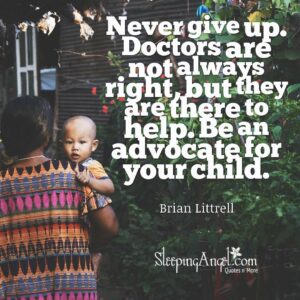Dear Director,
Our 12-year-old adopted son has been acting out of it and spacey. This is the time of year when he was removed from his birth family. Out of the blue, at school yesterday, he ran out of the classroom and didn’t respond to his name. He ended up in the school parking lot talking nonsense. By the time I arrived at school, he was pretty much back to normal but didn’t recall what had happened. We had a scheduled appointment with his Psychiatrist the very next day. She was quite dismissive of this episode and the changes we had been noticing in our son. How can I get my son’s Psychiatrist to listen to me? I heard this may be a trauma response, something called dissociation. I know my son best and the doctor should take my observations along with the school incident more seriously.
Signed, Frustrated
Dear Frustrated,
What a wonderful world we would live in if we were always recognized as the expert on ourselves, our families, our children, our homes, and so on, and so on. But there will always be people who think they know best after a brief time with you or your child. Some people are trained and capable of getting a good snapshot after interviewing or evaluating or teaching a child. But with the situation you describe, which is not that uncommon for a child with a trauma history, being there IN THE MOMENT is the only way to know what happened to your son, if they don’t listen to you, who have lived through it. Given that, the psychiatrist should not be quite so dismissive of your concerns, especially when you know your son’s history and how this is a change from a regular pattern of behavior.
When you become a parent, no matter how that happens or how old your child is, you are accepting the role of advocate. When your children are young, or if they are non-verbal, you are literally their voice to the rest of the world, interpreting them for others, and making sure their needs are met. As they get older, we may teach them to advocate for themselves-to speak up to friends about playing fair or joining games-and to ask questions in class when they don’t understand something. But, we should always be behind them, making sure they take the opportunity to speak up for themselves, or helping them find the best words to use to get a need met. But when they can’t or when the other adult is dismissive, or when their health is impaired, we need to be their advocate in the best possible and loudest voice.
My father always reminded me that when I speak to others, what is important is not to say my piece but for the other person to understand what I am saying. So, be aware of who you need to advocate to and how they may interpret your words. Will they think you are undermining their authority? Try being curious. Do they feel they know best? A brief reminder of what you know might help. Nervous about speaking truth to power? Bring in notes or an outline, and look at that, not the person trying to make you feel small and stupid. And, if they don’t listen, ask for a supervisor who may be more open to hearing your side of things. Or ask for another doctor, or another opinion, someone who may listen differently. Keep going until you are heard. And remember, showing a child or youth how to use language that allows the other person to REALLY HEAR what they have to say is a good way to model advocacy skills. And we all need an advocate now and then.





